The Huffington Post
|
By
Alena Hall
Posted:

Feline fans, rejoice: Your cat isn't just a cute and cuddly ball of fluff -- he's also incredibly good for your health.
Even
pet owners who prefer puppies can't deny the major benefits that come
along with caring for a furry friend of either species. Science shows
that pets can help prevent allergies in kids, ward off respiratory infections, improve your mood and even boost self-esteem.
Whether you're a crazy cat lady or a dude ready to publicly proclaim your obsession with your feline friend, get ready to celebrate the many pros of being a proud cat owner -- all negative stereotypes aside.
Here are 11 reasons we should appreciate all of the cuddly kitties in our lives.
They keep your heart healthy.
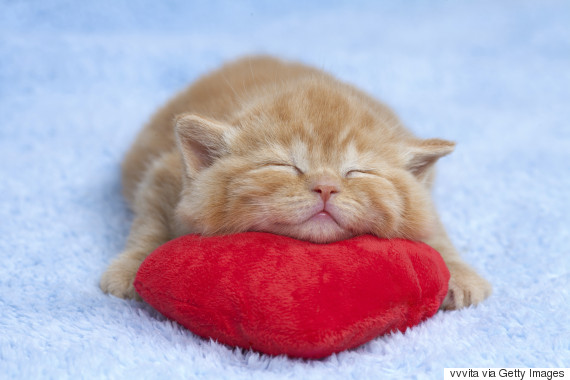
According
to a 2008 study from researchers at the University of Minnesota's
Stroke Institute, cat owners are less likely to die from heart attacks.
Monitoring nearly 4,500 people (three out of five participants owned a
cat) for a 10-year period, the researchers were able to determine that
the cat owners experienced a 30 percent reduced risk of death by heart attack than the participants without cats. A 2009 follow-up study
further established that cat ownership is linked to a decreased risk of
death from all cardiovascular diseases, including strokes.
They practically invented napping.
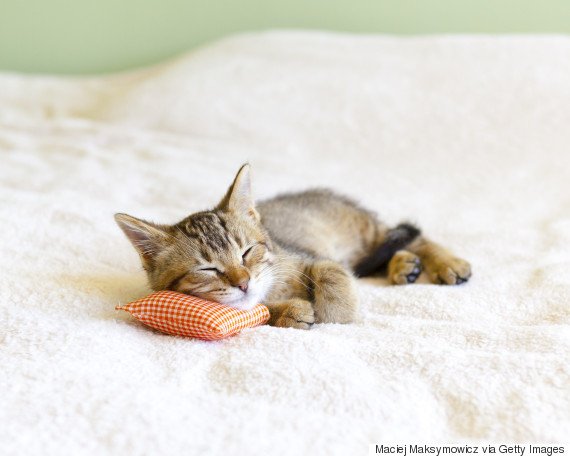
These
serious snoozers not only value the importance of sleep but also look
adorable doing it! Studies have shown that indulging in a little midday shut-eye can work wonders for your alertness, memory, creativity, productivity and overall mood.
So if you won't make time for a nap solo, maybe the opportunity to curl
up next to your furry friend will convince you to take a cozy 20-minute
rest today.
They don't let failure stand in their way.
No
matter how many times they fall, cats always find the will to get up
and try again. They have a resilient spirit, and probably know better
than we do that just because you make a few mistakes doesn't mean you're
incapable of achieving the success you envision for yourself in the
long run. They have those nine lives for a reason.
Their purrs naturally calm your nerves.
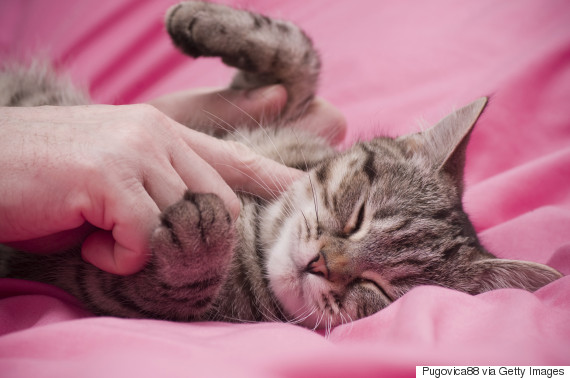
Studies show that cat purrs can help lower their owner's stress levels as well as reduce their blood pressure. Additionally, cats can create purr vibrations from 20 to 140 Hertz, a frequency said to be medically helpful for a variety of illnesses, reported Scientific American. As if you needed one more reason to scratch behind your kitty's ears!
They're all about the present moment.
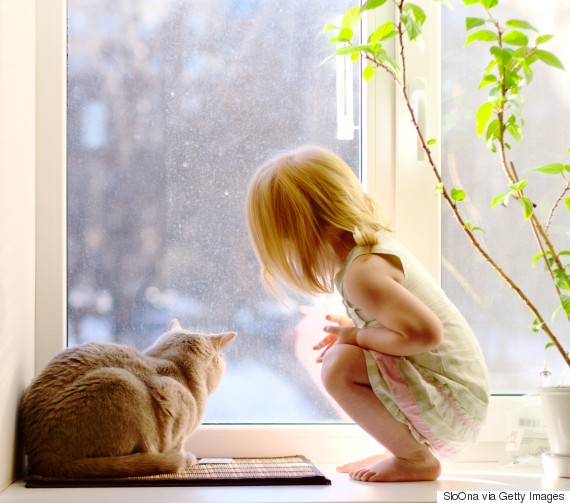
"I have lived with several Zen masters -- all of them cats." -- Eckhart Tolle
Sure,
they lead far less stressful lives than their human counterparts on
most days, but that doesn't discredit their innate ability to sit
perfectly still, sometimes hours on end, and just appreciate the present
moment. From their coveted spot on the windowsill to their reserved
perch on top of the bookshelf, they watch the world before them come and
go with ease. We, too, can reap the expanding list of benefits of a meditation practice should we decide to follow their lead.
They make you laugh harder than you ever thought possible.
Any
cat owner will tell you that these creatures are as hilarious as they
are cute. From playful mishaps to outright fails, it's impossible not to
laugh (a little at their expense) and subsequently reap the benefits of
such outbursts. Last year, researchers at California's Loma Linda
University found that watching just 20 minutes of funny videos reduced subjects' cortisol levels substantially and assisted the short-term memory of older participants. Other research has linked laughter to a stronger heart and immune system.
They teach us the importance of strategic decision-making.
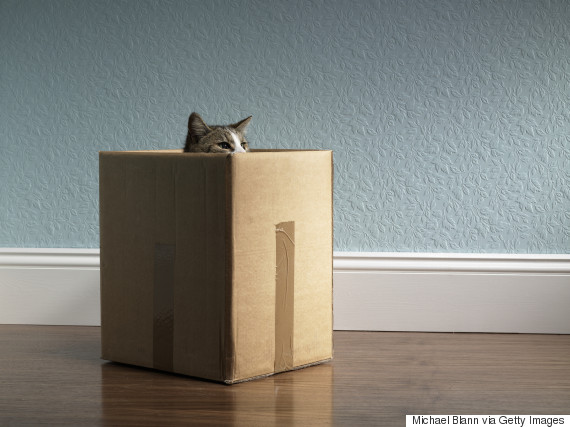
"If
animals could speak, the dog would be a blundering outspoken fellow;
but the cat would have the rare grace of never saying a word too much."
-- Mark Twain
Unlike their canine frenemies who leap at the
chance to sprint out the front door, chase the tennis ball down the
hallway or gobble up the bag of spilled treats off the kitchen floor,
cats tend to pick and choose their battles more carefully. They take
that extra moment to look, think and ponder from afar before deciding if
the current attraction is truly worth their attention. They even move
more intentionally as they climb to seemingly impossible heights and
then find safe ways to get down. They are thoughtful, strategic and
deliberate -- all characteristics their owners value and even hope to
embody themselves.
They can help people with autism communicate.
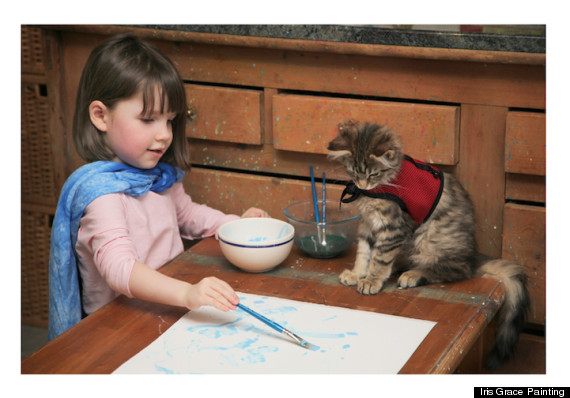
Children
and adults who have autism sometimes struggle to communicate with the
world around them. However, pet therapy has proven a helpful learning
tool, as many people with autism feel a stronger connection to animals
than they do other people. A 2012 French study
observed 40 autistic children and their family pets and found that the
children felt calmer and could socialize more easily than those without a
pet. They associated this change with the increased production of the
hormone oxytocin, which can be triggered by petting a cat and further increases feelings of trust and love.
Iris Grace Halmshaw, the 5-year-old British girl in the photo above, was diagnosed with autism in 2011.
Her therapy cat Thula has helped her gain enough confidence to speak to
others, as well as providing additional inspiration for her painting --
another component of her therapy.
They support you in your battle with depression.
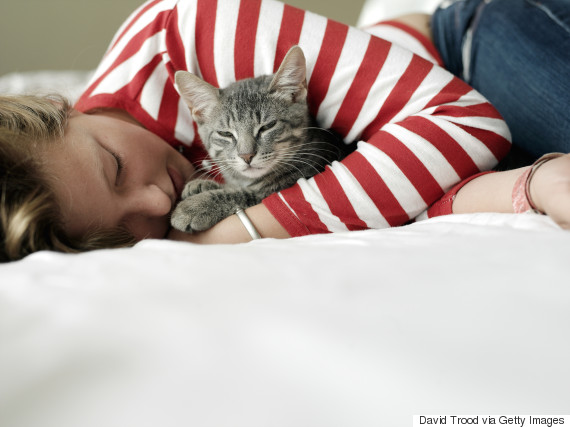
The
soothing nature of petting a cat on your lap is not limited to stress
relief. That tangible companionship is a known mood booster, and a positive distraction for those who struggle with depression disorders. Beyond their companionship, pets provide a way to add routine, responsibility and social activity
to days that might otherwise not include such components. And while all
pets can help play a role in improving depression symptoms, cats are particularly calm and peaceful, and those characteristics can be contagious for their owners in a rather helpful way.
They know it's alright to go berserk every now and then.
"A
cat has absolute emotional honesty: human beings, for one reason or
another, may hide their feelings, but a cat does not." -- Ernest
Hemingway
While cats are known for their calm and collected
demeanor, they're not afraid to totally lose it -- physically as well as
emotionally -- when the mood strikes. And as it turns out, that kind of
expression can help their owners as well. A 2012 study from the Harvard
School of Public Health found that bottling up negative emotions can actually prove toxic to the body, increasing the risk of death by heart disease and some cancers. Alternatively, psychologists have found that negative emotions like sadness, anxiety, anger and guilt can be powerfully positive when a person allows themselves to fully experience what they're feeling.
They crush feelings of loneliness with unconditional love.
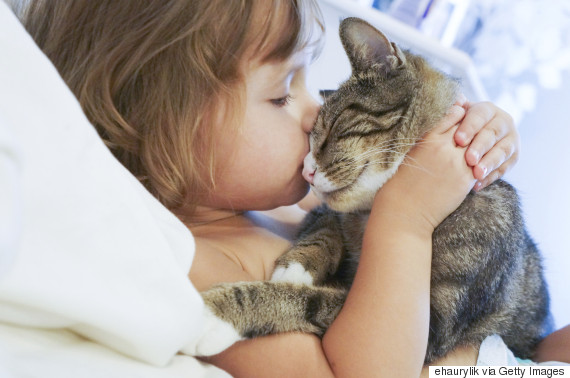
"What greater gift than the love of a cat." -- Charles Dickens
Even the Centers for Disease Control and Prevention
acknowledge that one of the biggest benefits of a pet is their ability
to ease our feelings of loneliness. They are often the best listeners we
could ask for at the end of a trying day, and the looks on their faces
as we walk through the front door remind us that there is always someone
excited to see us. According to researchers from Miami University and Saint Louis University, pets can fulfill their owners' social needs in the same way other humans can.



No comments:
Post a Comment